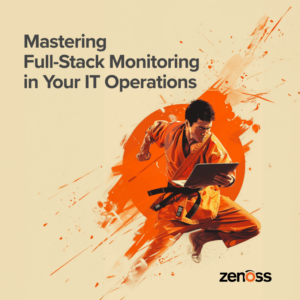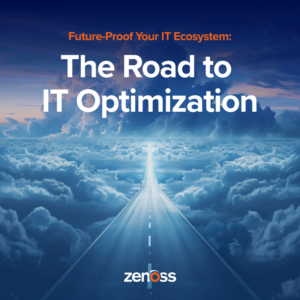Within every major IT inflection point, comes the opportunity for disruptive change that opens the door for new and innovative start-ups to catapult past the legacy providers to become leaders themselves.
In the very early days of what is now called Cloud Computing, the industry was focused on server virtualization and the role of the hypervisor. We watched as a tiny VMware battled a powerful open source community called Xen. Meanwhile, there was everything from Qumranet (KVM) to Microsoft (Hyper-V), with other offerings from IBM, SUN, and more.
In the end, VMware won the enterprise and grew into a new billion-dollar software company. The other offerings were either purchased by larger companies or continue in various open source forms today. A parallel to the hypervisor war is the battle for Cloud orchestration or Datacenter OS. (Note: You may hear this being referred to as DevOps.)
What is Cloud orchestration and why do I need it? Simply put, Cloud orchestration equals automation. It allows public, private, and hybrid clouds to operate with elasticity, scale, and efficiency that are needed to move at the ‘Speed of the Cloud’. Imagine the ability to predict a spike in utilization of a particular application and instantly provision new servers, storage, and networking capacity.
While the idea is not new, pioneers like Cassatt and Scalent recognized this need a bit too early for the market, the reality is the time for the application of this technology is now. To fill this void, we are in the midst of a gold rush of sorts among both traditional (commercial) and emerging (open source) software companies.
Today there are offerings from VMware, OpenStack, IBM, Nimbula, Puppet Labs, Gale Technologies, Eucalyptus, Cloud.com, Opscode, with more to come. Although each of these solutions targets the same problem, their approaches and visions are very different.
For example, Puppet Labs has incorporated technology from their acquisition of MCollective that provides a ‘message bus’ approach solution to the issue. OpenStack is developing software within a diverse community of developers, users, partners, and traditional/open source companies. You’ll find Eucalyptus closely aligning themselves with Amazon’s Cloud APIs and working with Linux provider Canonical to bring Eucalyptus to the masses. Cloud.com is building upon OpenStack to add unique features and capabilities. Opscode started the popular Chef open source integration framework that provides a powerful solution set designed for organizations of all sizes.
A word of caution, don’t count out VMware or dismiss the possibility of yet another disruptive technology entering the mix. VMware’s enterprise expertise, market share, and vast sales/partner network make them a player in this niche. While vCloud Director doesn’t get the publicity of some of the other solutions, it certainly is getting VMware’s engineering attention. Not to mention, VMware has a tight partnership with Cisco and EMC that requires this type of technology.
The world of Cloud computing demands that IT organizations must make key decisions with limited information. These decisions have the potential to impact these organizations far beyond today and must not be taken lightly. Cloud orchestration is an important ingredient that may determine the success or failure of your Cloud implementation. Hindsight is 20/20 and someday we will look back in amazement of who in this group became the next VMware.
Image Source: PhreneticGamer








